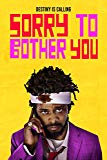
 |
|
| |||||||||||
|
June 12, 2020
Black Cinema: A Very Condensed History
 Silent and Early Film:
Kino Lorber has the terrific collection, Pioneers of African American Cinema, a collection of nearly 30 short and feature-length films from 1915 to 1978. These "race films" (as they were then known) were made outside of the studio system and feature generally lower budgets, but have held up every bit as well as their expensive counterparts.
Silent and Early Film:
Kino Lorber has the terrific collection, Pioneers of African American Cinema, a collection of nearly 30 short and feature-length films from 1915 to 1978. These "race films" (as they were then known) were made outside of the studio system and feature generally lower budgets, but have held up every bit as well as their expensive counterparts.
Blaxploitation: Shaft and Sweet Sweetback's Baadasssss Song heralded a revolution in American cinema and genre filmmaking. Throughout the 1970s, black audiences could see themselves on the silver screen as heroes, as well as realities they lived daily. The era marked the point at which black audiences were acknowledged and represented. Cult hits like Blacula, Boss, and The Last Dragon were all produced in this time period. Mainstream: The 1980s and 1990s saw Spike Lee's frank depictions of black life in his extensive filmography and John Singleton and Mario van Peebles (son of director/writer/star of Sweet Sweetback's Melvin van Peebles) shined a light on the criminal issues faced by modern youth in Boyz N the Hood and New Jack City, respectively. The first black, female filmmaker to have a film shown in US cinemas was only in 1991, with Julie Dash's Daughters of the Dust, paving the way for the likes of Debbie Allen, Kasi Lemmons, and Ava Duvernay. The Wesley Snipes-starring Blade saved the superhero genre the year after the disastrous Batman & Robin and convinced a near-bankrupt Marvel Comics to re-evaluate their film division and eventually led to the Marvel Cinematic Universe. In the 2010s, postmodern hits like Get Out from Jordan Peele and Sorry to Bother You by Boots Riley garnered critical acclaim in their explorations of racial dynamics, while Barry Jenkins' back-to-back Oscar winners Moonlight and If Beale Street Could Talk (the former being the first Best Picture winner with an all-black cast and/or LGBT theme) helped to finally get the recognition black cinema deserves. From being forced outside of the studios to billion-dollar superhero blockbusters, there have been innumerable black filmmakers, writers, producers, actors like Whoopi Goldberg, Sidney Poitier, Shonda Rhimes, Ryan Coogler, Tyler Perry, Angela Bassett, Idris Elba, Dorothy Dandridge, and too many more to list, who blazed trails, set standards, and continue to push forward.
Archives
Review Staff
| Newsletter Subscribe
| Join DVD Talk Forum
|
| |||||||||
| |||||||||||